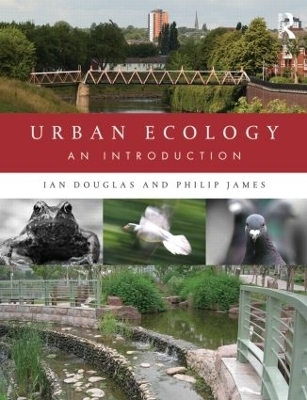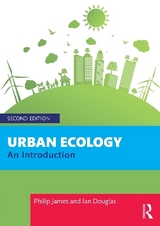
Urban Ecology
Routledge (Verlag)
978-0-415-53895-4 (ISBN)
- Titel erscheint in neuer Auflage
- Artikel merken
The book begins with a discussion of the nature of urban places and the role of nature in towns and cities. Part 1 looks at the context and content of urban ecology, its relationship to other foci of interest within ecology and other environmental sciences, and the character of city landscapes and ecosystems. In Part 2 the authors set out the physical and chemical components of urban ecosystems and ecological processes, including urban weather and climate, urban geomorphology and soils, urban hydrology and urban biogeochemical cycles. In Part 3 urban habitats, urban flora and fauna, and the effects of, deliberate and inadvertent human action on urban biota are examined. Part 4 contains an exploration of the identification and assessment of ecosystem services in urban areas, emphasising economic evaluation, the importance of urban nature for human health and well-being, and restoration ecology and creative conservation. Finally, in Part 5 the tasks for urban ecologists in optimising and sustaining urban ecosystems, providing for nature in cities, adapting to climate change and in developing the urban future in a more sustainable manner are set out.
Within the 16 chapters of the book – in which examples from around the world are drawn upon - the authors explore current practice and future alternatives, set out procedures for ecological assessment and evaluation, suggest student activities and discussion topics, provide recommended reading and an extensive bibliography. The book contains more than 150 tables and over 150 photographs and diagrams.
Ian Douglas is Emeritus Professor at the University of Manchester, with over 50 years of research experience relating to changes in the hydrologic and geomorphic systems of tropical rain forests, and to the biophysical changes in the urban environment. He is an Associate Editor of Ecological Processes, and Landscape and Urban Planning. Philip James is Professor of Ecology and leader of the Ecosystems & Environment Research Centre at the University of Salford. His research focuses on ecosystem ecology and urban ecology. He has been involved in a range of projects from creating ecological frameworks for cities and examining the ecosystem services associated with saltmarshes in urban areas to charting sustainable development in Shanghai.
Part I Why Urban Ecology: Its Significance for Human Life in Urban Areas 1. An Ecosystem Approach to Urban Areas 2. Urban Ecosystem Services and the Assessment of their Values 3. Human Health and Well-Being 4. Urban Design and Urban Planning for Sustainability and Adaptation to Climate Change Part II The Physical Environment 5. The Built and Human Environment in Urban Settlements 6. Urban Climate and the Energy Balance 7. Urban Geomorphology and Urban Soils: Knowing the Ground You Build on and Which You Cultivate 8. Urban Hydrology 9. Urban Biogeochemistry Part III Ecosystems, Habitats and Species 10. Urban Landscapes, Ecosystems and Habitat 11. Urban Flora and Vegetation 12. Urban Fauna Part IV Ensuring the Viability and Sustainability of Urban Ecosystems 13. From the Bottom-Up: Individual and Community Actions to Sustain Urban Ecology 14. Actions by Municipal and Metropolitan Region Governments 15. Restoration Ecology and Creative Conservation: Local and Regional Conservation 16. Actions by National Government, National NGOs and International Bodies 17. Future Ecology of Urban Areas: New Ecocities and Retrofitted Adaptive Greener Cities 18. Conclusion
| Zusatzinfo | 84 Tables, black and white; 97 Line drawings, black and white; 54 Halftones, black and white; 151 Illustrations, black and white |
|---|---|
| Verlagsort | London |
| Sprache | englisch |
| Maße | 189 x 246 mm |
| Gewicht | 1088 g |
| Themenwelt | Naturwissenschaften ► Biologie ► Botanik |
| Naturwissenschaften ► Biologie ► Ökologie / Naturschutz | |
| Naturwissenschaften ► Geowissenschaften ► Geografie / Kartografie | |
| Sozialwissenschaften ► Soziologie | |
| Technik ► Architektur | |
| Technik ► Umwelttechnik / Biotechnologie | |
| ISBN-10 | 0-415-53895-5 / 0415538955 |
| ISBN-13 | 978-0-415-53895-4 / 9780415538954 |
| Zustand | Neuware |
| Informationen gemäß Produktsicherheitsverordnung (GPSR) | |
| Haben Sie eine Frage zum Produkt? |
aus dem Bereich



